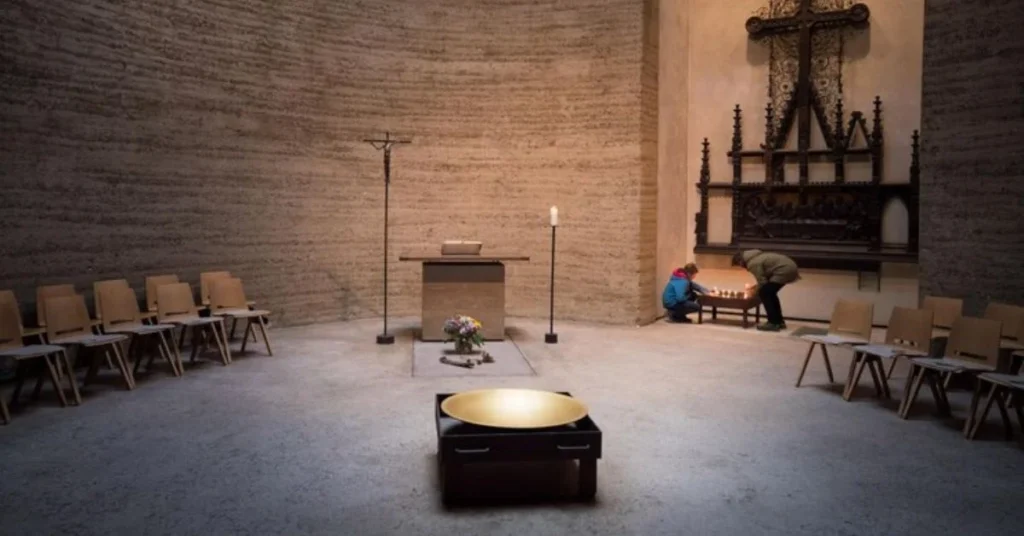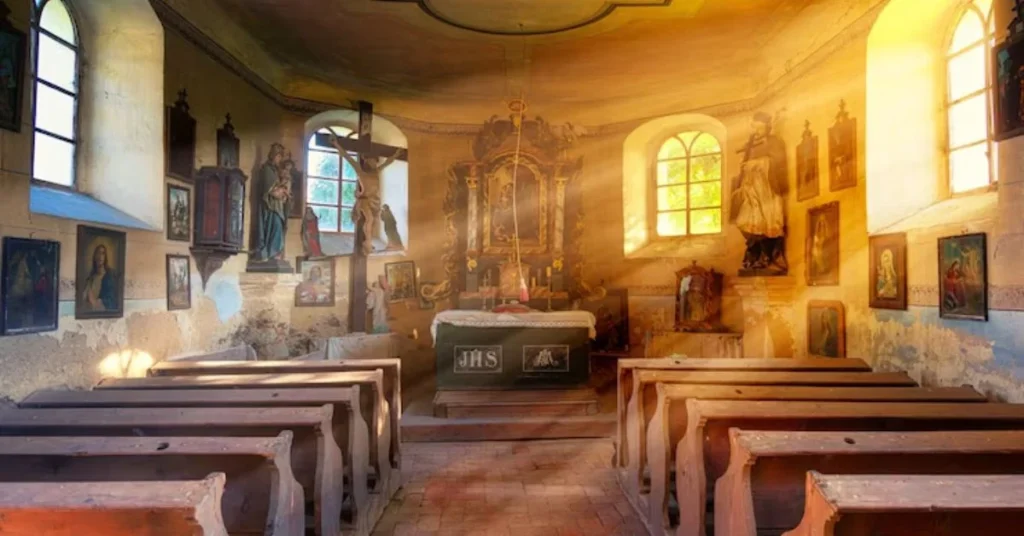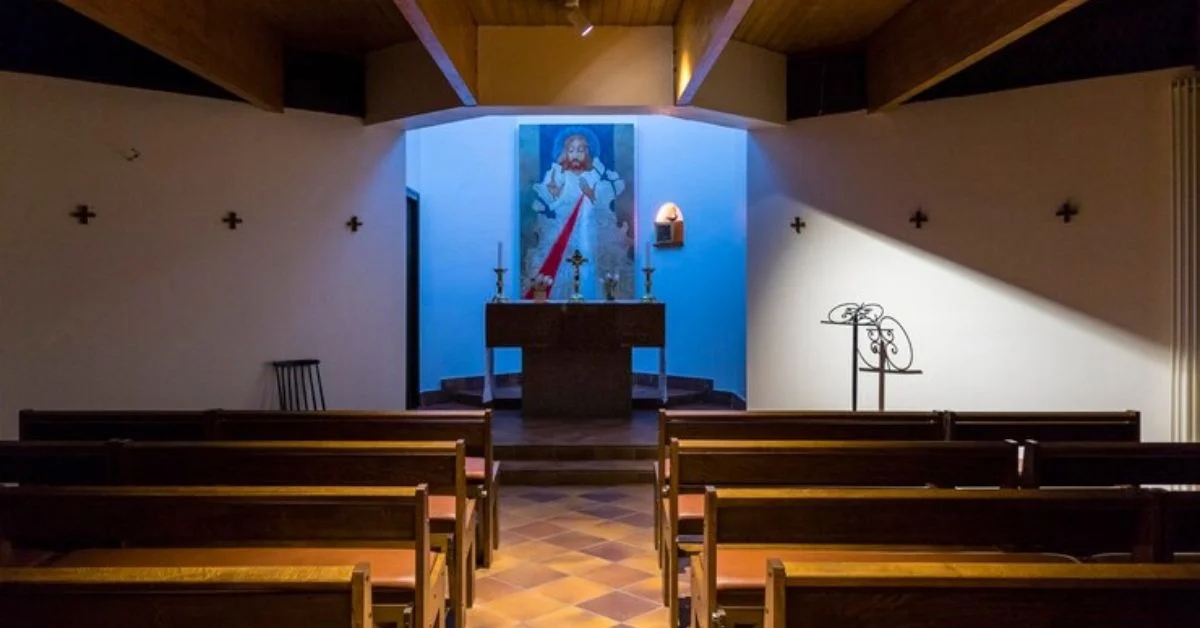In the realm of biblical dreams—those fleeting, often symbolic visions that unfold behind closed eyes—few images provoke as much quiet introspection as the dream of an empty church. Within Christian thought and tradition, dreams have long been considered potential vessels for divine communication. When a believer dreams of a church, especially one that is empty, the vision can reverberate with spiritual and emotional significance.
This article seeks to dissect, analyze, and reflect upon the meaning of the biblical dream about an empty church. Drawing upon scriptural themes, theological insights, and the psychological dimensions of spiritual experience, we explore how such a dream may act as a mirror to the soul, a message from God, or a critique of communal faith.
Churches in Scripture: Dream of an Empty Church
In the Bible, the “church” is never just a building. In fact, the earliest Christian communities met in homes and public spaces, emphasizing the people rather than the structure. Paul, in his epistles, referred to the church as the “body of Christ” (Romans 12:5, 1 Corinthians 12:27)—a living, breathing organism of faith and function.
To dream of an empty church, therefore, is to confront a symbolic absence. It may evoke a sense of spiritual vacancy, disconnectedness, or a call to reconvene what has been scattered. The image is not of physical architecture, but of spiritual architecture in disrepair.
Symbolism of Emptiness in Biblical Dreams
In biblical literature, emptiness is a recurring motif. From barren wombs to desolate cities, the absence of life or purpose is often a prelude to divine intervention or renewal:
- Sarah’s barren womb (Genesis 18) became the cradle of a covenant nation.
- The empty tomb (Matthew 28:6) signified not death, but resurrection and hope.
Thus, an empty church in a dream might not always symbolize loss or despair. It could also represent preparation—an interim silence before divine speaking, a spiritual pause before renewal.
A Warning or a Whisper: Dream of an Empty Church
The emptiness could serve as a warning—a symbol of declining faith, moral decay, or the absence of God’s presence. Alternatively, it could be a whisper of invitation: a call to fill the void with purpose, worship, and community.

The Psychological Landscape of Sacred Emptiness
Dreams often reflect not just spiritual realities but emotional truths. An empty church could mirror a personal sense of abandonment, loneliness, or spiritual stagnation.
Interpreting the Emotional Tone
- Peaceful Emptiness: May suggest solitude with God, a sacred space cleared for renewal.
- Haunting Emptiness: Could reflect fears of faithlessness, spiritual neglect, or disconnection from community.
In therapeutic terms, such dreams might emerge during transitions—leaving a faith community, questioning beliefs, or experiencing a “dark night of the soul,” as mystics have called it.
Theological Perspectives: God’s Voice in the Void
Theology teaches that God often speaks through absence. The Psalms echo with cries of divine silence: “Why, O Lord, do you stand far away?” (Psalm 10:1). Yet these moments of emptiness are not the end. They are often the prelude to divine action.
Empty Church as a Prophetic Vision
In the prophetic tradition, visions of empty sanctuaries could be interpreted as indictments—critiques of hollow worship or forgotten justice. Isaiah 1:12-17 denounces rituals devoid of righteousness. A dream of an empty church might be a similar divine critique of spiritual complacency.
A Call to Repentance and Renewal
Joel 2 urges believers to “return to me with all your heart.” Dreams may be a medium for such summons. The emptiness may not signify abandonment, but the space God clears for genuine repentance and heartfelt return.
The Role of Community in Dream Interpretation
Dreams about churches are communal as well as personal. Churches are where believers gather to become the Body of Christ. An empty church may point to the fragmentation or isolation of that body.
Interpreting with Discernment
Biblical dream interpretation is not formulaic. It requires:
- Prayerful reflection: Seeking God’s voice in the dream’s imagery.
- Community insight: Sometimes the meaning is clarified in conversation with trusted spiritual mentors.
- Scriptural grounding: Understanding how similar symbols are used in the Bible.
Contemporary Contexts and Modern Meanings
In a post-pandemic world, many believers have literally experienced empty churches. Sanctuaries that once rang with praise became silent under lockdown. For some, this dream may recall collective trauma—a reminder of absence, loss, or change.
Digital Faith and the Disembodied Church
The rise of online worship challenges the traditional notion of church as a physical gathering. Dreaming of an empty church may reflect subconscious grappling with this transition—what is lost when faith becomes pixelated?
Biblical Parallels and Literary Imagery
To understand the biblical dream of an empty church, it is helpful to consider related imagery in Scripture:
- The Temple Cleansed (John 2:13–22): Jesus clears the temple not to condemn it, but to restore its purpose.
- Ichabod (1 Samuel 4:21): Meaning “the glory has departed,” reflects a time when God’s presence seemed absent.
- The Remnant Theology (Isaiah 10:20-22): Suggests that even when structures fall, a faithful remnant remains.
When God Speaks in Absence
Much like Elijah’s encounter with God—not in wind, fire, or quake, but in a still, small voice (1 Kings 19)—dreams of emptiness may be God’s way of creating a quiet space for deep listening.

Dream as Dialogue
The empty church might be God’s question: “Where are my people?”
Or it might be your own: “Where is God?”
Responding to the Dream: Practical Steps
If you’ve had a dream about an empty church, consider these steps:
- Record the details. What emotions, colors, sounds, and symbols stood out?
- Pray for clarity. Ask God to reveal what the dream means in your current context.
- Seek wise counsel. Share the dream with a pastor, spiritual director, or mature believer.
- Reflect on your spiritual life. Are there areas of emptiness or invitation?
- Re-engage with community. If the dream stirred loneliness, it may be prompting reconnection.
Conclusion: Dream of an Empty Church
The biblical dream of an empty church is not a dream of absence, but of invitation. In the silence of the sanctuary, in the space cleared of clutter and crowd, God may be nearer than ever.
This dream asks the modern believer to reflect deeply: Where have we gone silent? Where have we emptied ourselves of divine purpose? And what will we fill that space with next?
In the quiet pews of your subconscious, the empty church may be waiting not for judgment, but for the return of its people—faith renewed, hearts open, ready once more to hear the voice that once echoed from burning bushes and empty tombs alike.
For more information, click here.









